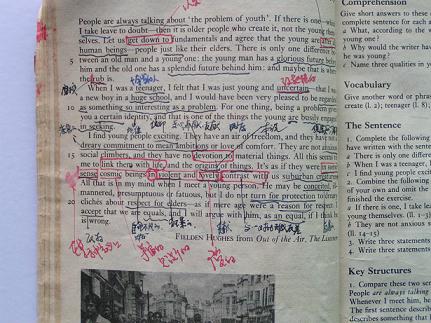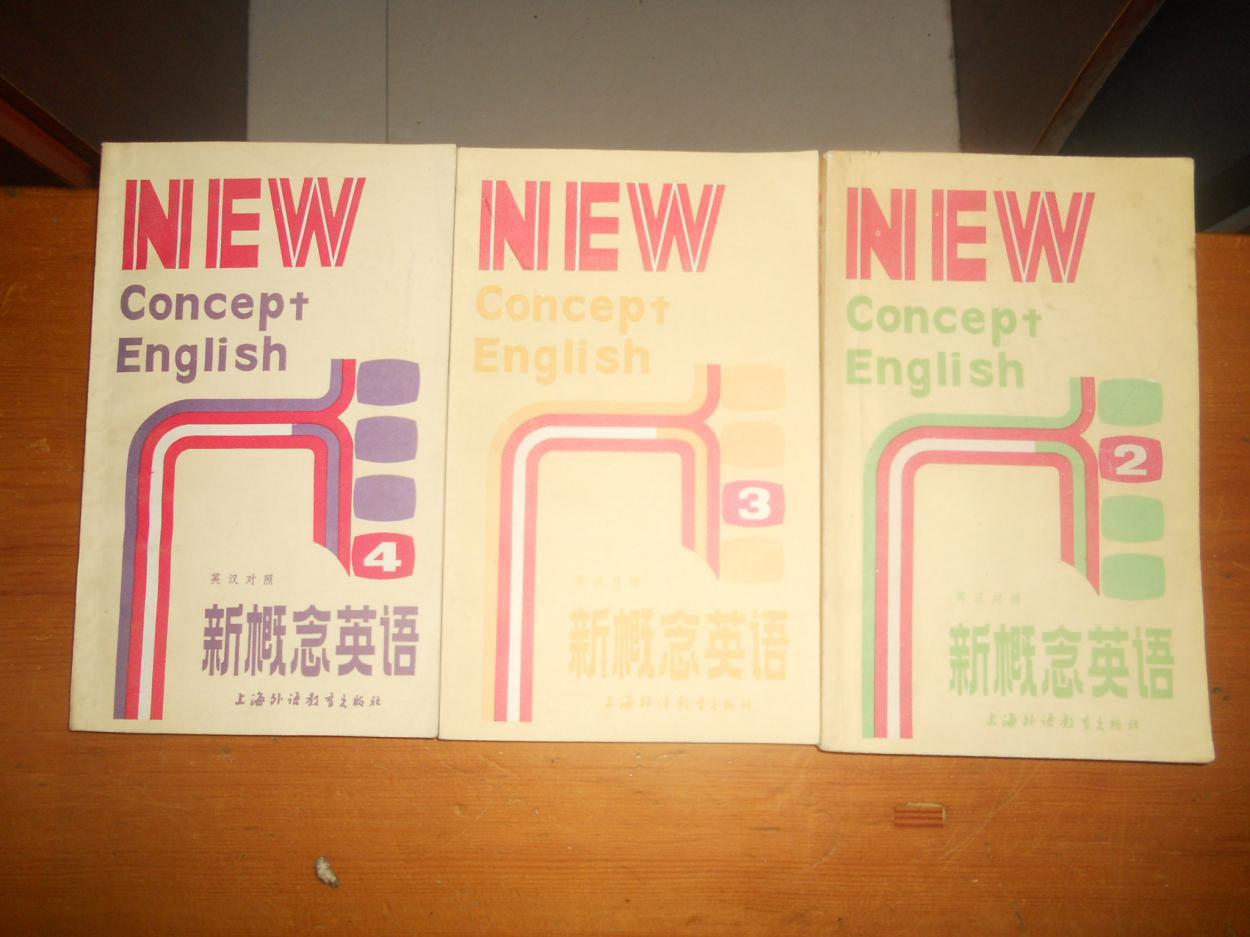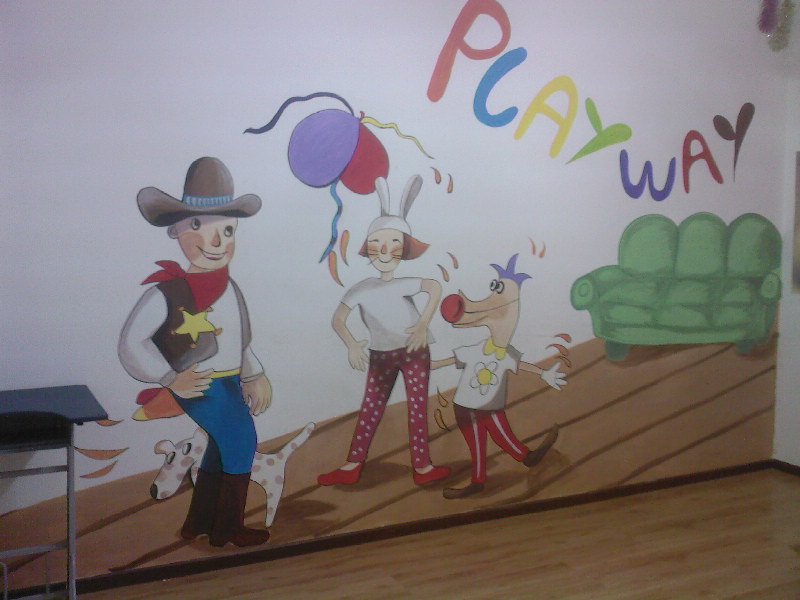 返回
教育头条
返回
教育头条

新概念英语每日一练
新概念英语学习,接下来小编给大家带来了一些相关的练习,希望对大家的英语水平会有所帮助!
Do you call that a hat? 你把那个叫帽子吗?
First listen and then answer the question.
听录音,然后回答以下问题。
What kind of shopping does the writer enjoy, do you think?
'Do you call that a hat?' I said to my wife.
'You needn't be so rude about it,' my wife answered as she looked atherself in the mirror.
I sat down on one of those modern chairs withholes in it and waited. We had been in the hat shop for half an hour and mywife was still in front of the mirror.
'We mustn't buy things we don't need,' I remarked suddenly. I regrettedsaying it almost at once.
'You needn't have said that,' my wife answered. 'I needn't remind you ofthat terrible tie you bought yesterday.'
'I find it beautiful,' I said. 'A man can never have too many ties.'
'And a woman can't have too many hats,' she answered.
Ten minutes later we walked out of the shop together. My wife waswearing a hat that looked like a lighthouse!
New words and expressions 生词和短语
rude adj. 无礼的
mirror n. 镜子
hole n. 孔
remark v. 评说
remind v. 提醒
lighthouse n. 灯塔
参考译文
“你把那个叫帽子吗?”我对妻子说。
“你说话没必要这样不客气,”我的妻子边回答边照着镜子。
我坐在一个新式的满是网眼儿的椅子上,等待着。我们在这家帽店已经呆了半个小时了,而我的妻子仍在镜子面前。
“我们不应该买我们不需要的东西,”我突然发表意见说,但马上又后悔说了这话。
“你没必要这么说,”我妻子回答说,“我也不必提醒你昨天买的那条糟糕透了的领带。”
“我觉得它好看,”我说,“男人有多少领带也不会嫌多。”
“女人有多少帽子也不嫌多。”她回答。
10分钟以后,我们一道走出了商店。我妻子戴着一顶像灯塔一样的帽子。
【学习笔记】
【New words and expressions】(6)
★rude adj. 无礼的(强调故意的)
impolite adj. 不礼貌,表示没有注意到礼节性的问题, 所以显得有些不礼貌(polite的反义词,以p开头的形容词的否定前缀为im)
cheeky adj. 无礼, 没礼貌的(表示小孩对长辈)
Don’t becheeky! 不得无礼!naive adj. 天真的
★mirror n. 镜子
look at oneself inthe mirror 照镜子
mirrot of… ……的写照,……的真实反映
★hole n. 孔hole in 地点 地方)有个洞
★remark v. 评说 主要指说, 当say 来理解
★remind ① vt. 提醒
remind sb. of sth./ remind sb. to do sth. / remind sb. that…提醒某人做某事
② vt. 使……想起She reminds me of her sister.
reminder n. 提醒物
【课文讲解】
1、Do you callthat a hat?
“Do you call that (冠词) 名词”这个结构可以表达一种轻蔑的含义:
Do you call that a house/? 你把那个叫房子/?
2、You needn'tbe so rude about it.
be rude aboutsth. 对事很粗鲁
be rude to sb. 对人很粗鲁
3、I sat downon one of those modern chairs with holes in it and waited. on the chair 在椅子上
4、We had beenin the hat shop for half an hour and my wife was still in front of the mirror.
名词修饰名词, 一般用单数:bookstore书店,drugstore药店,
5、I regrettedsaying it almost at once.
regret doing sth./名词/that从句 后悔已经做了某事,表示对做过的事感到遗憾
regret to dosth. 表示对现在或将来要做的事感到对不起、遗憾,比be sorry to dosth.要正式:
6、'You needn't have said that,' my wifeanswered. 'I needn't remind you of that terrible tie you bought yesterday.'
needn't havedone 原本不必做, 但是做了, 强调过去的动作不必做。
needn't do 现在的动作也不必做
remind sb. ofsth. 提醒某人想起某事
7、'I find itbeautiful,' I said.
动词find经常用于“动词 宾语 宾语补足语”这种结构:I find this book very interesting.
8、A man cannever have too many ties.
can never…too…=cannot…too… 无论……也不为过I can never thank you too much. 感激不尽。
【Key structures】
Must, Have (got) toand Need
情态动词must(必须,不得不)的否定式 mustn't(不能、不准),must还可用于表示推测:
① 对现在和将来的推测:must 动词用原形
② 对正在发生的事情的推测:mustbe doing
③ 对过去的推测:musthave done
④ 对过去正在发生的事情的推测:must have been doing

用must的一般疑问句可以用must/have to或needn’t来回答,而不用mustn’t:
Must I set off now?Yes, you must / haveto.
No, you needn’t.
mustn’t表示**禁止,在说话人看来,根本没选择余地:“不必要”可用needn’t,don’t have to来表示:
needn’t = don’thave to
needn’t have done =didn’t have to
You needn’t / don’t have to work such longhours.
英语中的need有两种词性,一个是普通动词(需要),一种是情态动词。need的否定形式对应也有两种:needn't 不必(情态动词need的否定);don't need 不需要(普通动词need的否定)。
need I...?(情态) / do Ineed...? 实义动词
在实义动词后面再加一个实义动词, 就在后面加to do.Need I go out? = Do I need togo out? 情态动词后面不能直接用名词做宾语,实义动词后面可以直接加名词, 故need 后面如是名词, 则这个need 为实义动词
例 :He__c__follow me .
a doesn’t need bneedn’t to c didn’t need to d. needs
need用于疑问句时,问者往往希望得到否定的回答:Need you leave so soon? 你有必要这么早就走吗?
用need的一般疑问句的肯定形式的回答可以用must/had to,否定形式的回答可以用needn’t:
Need I type this letter again?
Yes, you must. / No, you needn’t.
Need you have told him about my plans?
Yes, I had to. / No, I needn’t have.
表示必要时,must的语气比need要强:
I must go to the dentist this moring.
这种句型可用来表示说话人让对方选择或允许对方可以不做某事的主观意图。它的完成式和过去式分别为needn’t have,didn’t have to和didn’t need to:
I needn’t have gone to the office yesterday.
I didn’t have to / didn’t need to go to theoffice yesterday.
need doingsth. 需要被做(用主动表达被动含义)
①这里need属于实义动词, 动词ing相当于名词来理解
②有时态和人称变化,否定式为: don’t need doing
③ need doing 表达被动含义, 如: Your shoes need washing. 你的鞋子需(被)洗了
另外want doing也是用主动表示被动含义,它们的主语一定是物, 不是人Your hair needs cuting.
need to be done---主语是人,也可以是物
对比 mustn't和 needn't:
You musn’t read itbed. It’s bad for your eyes.
(be bad for… 对……有害)
Smoking is bad foryour health. 抽烟有害你的健康
You mustn't make anoise. The children are asleep. You needn't drive so quickly. We have plenty oftime.
=You don't haveto(haven't got to) drive so quickly. We have plenty of time.
【Special Difficulties】
Remark, Observe andNotice
remark与observe都可以表示“说,评论说”,它们比say要正式:
‘You’re lookingvery well!’She remarked/observed.
notice和observe都可以表示“注意到,察觉到”,但有一定区别。notice指无意中“察觉到”;observe则可以指有意观察、仔细地看,比notice更正式:
He observed mecarefully. (He looked at me.) Did younotice how she was dressed?
I’ve noticed/observed that he telephones heroftener than before.
make rude remark / call one's name / say Fwords (F 指 fuck) 讲粗话,骂人
fail to dosth. 没有能够
not fail to 表示强烈地肯定
I had changed thefurniture round that you can not fail to notict it.我已经把周围的家具都换了。
Do you call that a hat? 你把那个叫帽子吗?
First listen and then answer the question.
听录音,然后回答以下问题。
What kind of shopping does the writer enjoy, do you think?
'Do you call that a hat?' I said to my wife.
'You needn't be so rude about it,' my wife answered as she looked atherself in the mirror.
I sat down on one of those modern chairs withholes in it and waited. We had been in the hat shop for half an hour and mywife was still in front of the mirror.
'We mustn't buy things we don't need,' I remarked suddenly. I regrettedsaying it almost at once.
'You needn't have said that,' my wife answered. 'I needn't remind you ofthat terrible tie you bought yesterday.'
'I find it beautiful,' I said. 'A man can never have too many ties.'
'And a woman can't have too many hats,' she answered.
Ten minutes later we walked out of the shop together. My wife waswearing a hat that looked like a lighthouse!
New words and expressions 生词和短语
rude adj. 无礼的
mirror n. 镜子
hole n. 孔
remark v. 评说
remind v. 提醒
lighthouse n. 灯塔
参考译文
“你把那个叫帽子吗?”我对妻子说。
“你说话没必要这样不客气,”我的妻子边回答边照着镜子。
我坐在一个新式的满是网眼儿的椅子上,等待着。我们在这家帽店已经呆了半个小时了,而我的妻子仍在镜子面前。
“我们不应该买我们不需要的东西,”我突然发表意见说,但马上又后悔说了这话。
“你没必要这么说,”我妻子回答说,“我也不必提醒你昨天买的那条糟糕透了的领带。”
“我觉得它好看,”我说,“男人有多少领带也不会嫌多。”
“女人有多少帽子也不嫌多。”她回答。
10分钟以后,我们一道走出了商店。我妻子戴着一顶像灯塔一样的帽子。
【学习笔记】
【New words and expressions】(6)
★rude adj. 无礼的(强调故意的)
impolite adj. 不礼貌,表示没有注意到礼节性的问题, 所以显得有些不礼貌(polite的反义词,以p开头的形容词的否定前缀为im)
cheeky adj. 无礼, 没礼貌的(表示小孩对长辈)
Don’t becheeky! 不得无礼!naive adj. 天真的
★mirror n. 镜子
look at oneself inthe mirror 照镜子
mirrot of… ……的写照,……的真实反映
★hole n. 孔hole in 地点 地方)有个洞
★remark v. 评说 主要指说, 当say 来理解
★remind ① vt. 提醒
remind sb. of sth./ remind sb. to do sth. / remind sb. that…提醒某人做某事
② vt. 使……想起She reminds me of her sister.
reminder n. 提醒物
【课文讲解】
1、Do you callthat a hat?
“Do you call that (冠词) 名词”这个结构可以表达一种轻蔑的含义:
Do you call that a house/? 你把那个叫房子/?
2、You needn'tbe so rude about it.
be rude aboutsth. 对事很粗鲁
be rude to sb. 对人很粗鲁
3、I sat downon one of those modern chairs with holes in it and waited. on the chair 在椅子上
4、We had beenin the hat shop for half an hour and my wife was still in front of the mirror.
名词修饰名词, 一般用单数:bookstore书店,drugstore药店,
5、I regrettedsaying it almost at once.
regret doing sth./名词/that从句 后悔已经做了某事,表示对做过的事感到遗憾
regret to dosth. 表示对现在或将来要做的事感到对不起、遗憾,比be sorry to dosth.要正式:
6、'You needn't have said that,' my wifeanswered. 'I needn't remind you of that terrible tie you bought yesterday.'
needn't havedone 原本不必做, 但是做了, 强调过去的动作不必做。
needn't do 现在的动作也不必做
remind sb. ofsth. 提醒某人想起某事
7、'I find itbeautiful,' I said.
动词find经常用于“动词 宾语 宾语补足语”这种结构:I find this book very interesting.
8、A man cannever have too many ties.
can never…too…=cannot…too… 无论……也不为过I can never thank you too much. 感激不尽。
【Key structures】
Must, Have (got) toand Need
情态动词must(必须,不得不)的否定式 mustn't(不能、不准),must还可用于表示推测:
① 对现在和将来的推测:must 动词用原形
② 对正在发生的事情的推测:mustbe doing
③ 对过去的推测:musthave done
④ 对过去正在发生的事情的推测:must have been doing

用must的一般疑问句可以用must/have to或needn’t来回答,而不用mustn’t:
Must I set off now?Yes, you must / haveto.
No, you needn’t.
mustn’t表示**禁止,在说话人看来,根本没选择余地:“不必要”可用needn’t,don’t have to来表示:
needn’t = don’thave to
needn’t have done =didn’t have to
You needn’t / don’t have to work such longhours.
英语中的need有两种词性,一个是普通动词(需要),一种是情态动词。need的否定形式对应也有两种:needn't 不必(情态动词need的否定);don't need 不需要(普通动词need的否定)。
need I...?(情态) / do Ineed...? 实义动词
在实义动词后面再加一个实义动词, 就在后面加to do.Need I go out? = Do I need togo out? 情态动词后面不能直接用名词做宾语,实义动词后面可以直接加名词, 故need 后面如是名词, 则这个need 为实义动词
例 :He__c__follow me .
a doesn’t need bneedn’t to c didn’t need to d. needs
need用于疑问句时,问者往往希望得到否定的回答:Need you leave so soon? 你有必要这么早就走吗?
用need的一般疑问句的肯定形式的回答可以用must/had to,否定形式的回答可以用needn’t:
Need I type this letter again?
Yes, you must. / No, you needn’t.
Need you have told him about my plans?
Yes, I had to. / No, I needn’t have.
表示必要时,must的语气比need要强:
I must go to the dentist this moring.
这种句型可用来表示说话人让对方选择或允许对方可以不做某事的主观意图。它的完成式和过去式分别为needn’t have,didn’t have to和didn’t need to:
I needn’t have gone to the office yesterday.
I didn’t have to / didn’t need to go to theoffice yesterday.
need doingsth. 需要被做(用主动表达被动含义)
①这里need属于实义动词, 动词ing相当于名词来理解
②有时态和人称变化,否定式为: don’t need doing
③ need doing 表达被动含义, 如: Your shoes need washing. 你的鞋子需(被)洗了
另外want doing也是用主动表示被动含义,它们的主语一定是物, 不是人Your hair needs cuting.
need to be done---主语是人,也可以是物
对比 mustn't和 needn't:
You musn’t read itbed. It’s bad for your eyes.
(be bad for… 对……有害)
Smoking is bad foryour health. 抽烟有害你的健康
You mustn't make anoise. The children are asleep. You needn't drive so quickly. We have plenty oftime.
=You don't haveto(haven't got to) drive so quickly. We have plenty of time.
【Special Difficulties】
Remark, Observe andNotice
remark与observe都可以表示“说,评论说”,它们比say要正式:
‘You’re lookingvery well!’She remarked/observed.
notice和observe都可以表示“注意到,察觉到”,但有一定区别。notice指无意中“察觉到”;observe则可以指有意观察、仔细地看,比notice更正式:
He observed mecarefully. (He looked at me.) Did younotice how she was dressed?
I’ve noticed/observed that he telephones heroftener than before.
make rude remark / call one's name / say Fwords (F 指 fuck) 讲粗话,骂人
fail to dosth. 没有能够
not fail to 表示强烈地肯定
I had changed thefurniture round that you can not fail to notict it.我已经把周围的家具都换了。
如果大家通过上面的阅读,还想了解更多新概念英语相关信息,可以关注我的微信18560125702,我会为你匹配最适的学习方案,选课有问题,快来找学姐,嘻嘻。返回教育宝头条
【免责声明】本文仅代表作者本人观点,与教育宝无关。教育宝对文中陈述、观点判断保持中立,不对所包含内容的准确性、可靠性或完整性提供任何保证。请读者仅作参考,特此声明!





